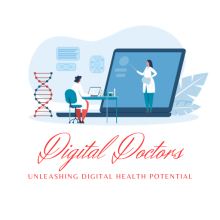Inspirational journeys
Follow the stories of academics and their research expeditions
Innovation, Creativity, and Entrepreneurship: Integral to a Prosperous, Resilient, and Sustainable Africa

Abstract
Purpose This article aims to comprehensively analyze
the indispensable roles of innovation, creativity, and entrepreneurship as core
drivers for achieving prosperity, enhancing resilience, and ensuring
sustainable development across the African continent. It seeks to articulate
how these interconnected forces can unlock Africa's vast potential, transform
its economies, and address its unique socio-economic and environmental
challenges.
Findings The investigation reveals that innovation,
ranging from technological advancements (e.g., mobile money, AI in health) to
indigenous and social innovations, is crucial for economic diversification and
problem-solving. Creativity, particularly within the burgeoning creative
industries (e.g., Nollywood, Afrobeats), serves as a significant engine for job
creation, cultural expression, and economic growth. Entrepreneurship, both
necessity-driven and opportunity-driven, is vital for job creation, poverty alleviation,
and the development of localized solutions that contribute to sustainable
development goals. Key challenges include funding gaps, inadequate
infrastructure, regulatory hurdles, and limited human capital. However,
strategic policy support, investment in education, fostering robust innovation
ecosystems, and promoting public-private partnerships are proving effective in
harnessing these forces for transformative change.
Research
Limitations/Implications This
review synthesizes contemporary research and case studies on innovation,
creativity, and entrepreneurship in Africa. While it provides a broad overview,
the diverse contexts across the continent mean that specific impacts and
strategies may vary by region and sector. The implications are profound for
policymakers, educators, investors, and local communities, highlighting the
urgent need for coordinated efforts to cultivate an enabling environment where
these drivers can flourish, ultimately leading to inclusive and sustainable
growth for Africa.
Practical
Implications For governments,
the practical implications involve designing supportive policies, investing in
digital and physical infrastructure, and promoting entrepreneurship education.
For businesses and investors, it underscores opportunities in Africa's dynamic
markets. For educational institutions, it emphasizes curriculum development
that fosters creative thinking and entrepreneurial skills. For individuals, it
highlights pathways for economic empowerment and societal contribution.
Social Implications By fostering innovation, creativity, and
entrepreneurship, Africa can reduce unemployment, particularly among youth and
women, alleviate poverty, improve access to essential services (e.g., clean
energy, healthcare), and build more resilient communities capable of adapting
to global challenges like climate change. This strengthens social cohesion,
celebrates cultural identity, and accelerates progress towards the UN
Sustainable Development Goals.
Originality/Value This article offers a holistic perspective on
the synergistic relationship between innovation, creativity, and
entrepreneurship within the African context. By integrating diverse examples
and outlining strategic pathways, it provides a valuable framework for
understanding and promoting these critical elements as fundamental to Africa's
self-determined and sustainable future.
Keywords: Innovation, Creativity, Entrepreneurship,
Africa, Prosperity, Resilience, Sustainability, Economic development, Digital
transformation, Creative economy, Youth employment, Policy frameworks,
Ecosystem development, SDGs, African solutions.
Article Type: Original Research
Full Article:
Innovation, Creativity, and Entrepreneurship: Integral to a Prosperous,
Resilient, and Sustainable Africa
Introduction
Africa stands at the
cusp of a profound transformation, characterized by dynamic demographic shifts,
increasing digital connectivity, and a burgeoning youth population. While the
continent continues to grapple with complex challenges such as poverty, unemployment,
climate vulnerability, and health disparities, there is a growing recognition
that its future prosperity, resilience, and sustainability will not be solely
dependent on traditional economic models or external aid. Instead, the
continent's trajectory will be fundamentally shaped by its ability to unleash
and nurture its inherent human potential through innovation, creativity, and
entrepreneurship. These three interconnected forces are increasingly
understood as the bedrock upon which a vibrant, self-reliant, and globally
competitive Africa can be built. They represent not just economic drivers, but
cultural catalysts and societal problem-solvers.
This article
comprehensively explores the indispensable roles of innovation, creativity, and
entrepreneurship in shaping Africa's future. It delves into how these elements,
when strategically cultivated, can lead to diversified and robust economies,
enhance the continent's capacity to withstand and recover from shocks (be they
economic, environmental, or health-related), and ensure that development is
equitable and enduring for generations to come. We will examine the distinct
contributions of each pillar, highlight the common challenges that impede their
growth, and, crucially, outline actionable strategies and policy
recommendations for fostering an enabling environment. Through illustrative
case studies from across the continent, this paper aims to provide a strategic
blueprint for leveraging Africa's ingenuity to achieve its ambitious
sustainable development goals.
The Pillars of
Transformation: Innovation, Creativity, and Entrepreneurship
To understand their
collective impact, it is essential to dissect the individual contributions of
innovation, creativity, and entrepreneurship:
1. Innovation: The
Engine of Progress and Problem-Solving
Innovation, broadly
defined as the creation and implementation of new or significantly improved
products, services, processes, or organizational methods, is the primary engine
of economic growth and societal advancement. In Africa, innovation takes on a particularly
critical role, often driven by necessity and characterized by ingenuity in
resource-constrained environments. It is not merely about high-tech solutions
but also about adapting existing technologies and developing novel approaches
to local challenges.
- Driving Economic Diversification and
Competitiveness:
Innovation allows African economies to move beyond reliance on raw
material exports, fostering diversification into higher-value sectors. By
developing new products and services, African businesses can become more
competitive in both local and international markets (ECASR, n.d.). For
example, the widespread adoption of mobile money platforms like M-Pesa
in Kenya revolutionized financial inclusion, allowing millions of
unbanked individuals to access financial services, send remittances, and
conduct business via their mobile phones. This indigenous innovation has
not only spurred economic activity but has also been replicated globally,
showcasing Africa's capacity to lead in digital transformation (David
South Consulting, 2022).
- Solving Local Challenges with Local
Solutions: African
innovation often emerges from a deep understanding of local pain points.
This includes innovations in renewable energy (e.g., Sun King's
pay-as-you-go solar solutions addressing energy poverty in off-grid
communities) (MIGA, n.d.), sustainable agriculture (e.g.,
drought-resistant crops, precision farming enabled by drones), and
healthcare (e.g., AI-powered diagnostics for remote areas). These
solutions are inherently more sustainable because they are designed for
the specific contexts and needs of the communities they serve, fostering
self-reliance and resilience (The Rockefeller Foundation, 2025; The
Standard, 2025).
- Fostering Technological Leapfrogging: Rather than following traditional
development paths, Africa has often "leapfrogged" older
technologies. The rapid adoption of mobile technology, bypassing
fixed-line infrastructure, is a prime example. This trend continues with
the embrace of Artificial Intelligence (AI) and blockchain. African
developers and entrepreneurs are actively shaping AI ecosystems that
reflect local needs and values, focusing on open-source models and
inclusive technological approaches to accelerate progress and ensure
benefits for everyone (African Leadership Magazine, 2025). This digital
transformation is critical for enhancing productivity across all sectors,
from education to healthcare and agriculture (WEF, 2022).
2. Creativity:
Unlocking Cultural Capital and Economic Value
Creativity, the
ability to generate new and valuable ideas, is a fundamental human attribute
that, when nurtured, can become a powerful economic engine and a source of
national pride. Africa's rich and diverse cultural heritage provides an
unparalleled wellspring for creative industries.
- Economic Powerhouse and Job Creation: The creative industries—encompassing
film, music, fashion, design, crafts, digital content, gaming, and
more—are emerging as significant engines of growth, particularly for youth
and women. These sectors are labor-intensive, decentralized, and entrepreneurial,
making them accessible to small businesses and freelancers. UNESCO
estimates that Africa's film and audiovisual sector alone employs around 5
million people and contributes $5 billion to GDP across the continent.
Projections suggest the broader creative sector could create over 20
million jobs and generate $20 billion in annual revenues under the right
conditions (Aninver Development Partners, 2025).
- Nollywood (Nigeria's film industry): Produces approximately 2,500 films per
year with annual revenues exceeding $1 billion, making it a major
contributor to Nigeria's GDP and a source of livelihood for hundreds of
thousands (Aninver Development Partners, 2025).
- Afrobeats and Amapiano: African music genres have captured
global audiences, creating new opportunities for artists, producers,
event organizers, and digital content creators. This global reach not
only generates revenue but also enhances Africa's cultural soft power
(Aninver Development Partners, 2025).
- Preserving Heritage and Shaping Identity: Beyond economic metrics, creative
industries play a vital role in preserving cultural heritage, telling
authentic African stories, and shaping national identities. This intrinsic
value fosters social cohesion and cultural diplomacy, promoting understanding
across diverse communities and on the global stage (AJCE, 2024). Efforts
to combat piracy are crucial to ensure the sustainability of these
industries and protect the intellectual property of creators (African
Leadership Magazine, 2025).
- Fostering Digital Adaptation: The COVID-19 pandemic, while challenging,
accelerated the digitization of creative industries, pushing artists and
entrepreneurs to adapt to e-commerce, online streaming, and digital
marketing. This has expanded access to global markets, offering new growth
opportunities and pathways to generate income, provided creative
entrepreneurs are equipped with digital literacy and upskilling
(Mastercard Foundation, 2021).
3.
Entrepreneurship: The Catalyst for Economic Growth and Social Impact
Entrepreneurship, the
process of identifying opportunities and creating new ventures to pursue them,
is fundamental to job creation, economic diversification, and the translation
of innovative and creative ideas into tangible solutions. In Africa, entrepreneurship
is a dynamic force, often arising from both necessity and opportunity.
- Job Creation and Poverty Alleviation: With a rapidly growing youth population,
Africa faces an urgent need for job creation. Entrepreneurship offers a
viable solution by empowering individuals, particularly youth and women,
to start their own businesses, generating self-employment and creating
jobs for others. Micro-, small, and medium-sized enterprises (MSMEs) are
the backbone of African economies, representing about 90% of businesses
and accounting for over two-thirds of employment globally (UNCTAD, 2022).
By fostering a culture of entrepreneurship, countries can stimulate
economic activity and reduce unemployment (IJRSI, 2025).
- Economic Diversification and Resilience: Entrepreneurship plays a crucial role in
diversifying economies away from over-reliance on single sectors (e.g.,
commodities), promoting the development of new industries and value
chains. This diversification enhances economic resilience, making countries
less vulnerable to global market fluctuations (Scitech Journals, n.d.).
Examples include startups in renewable energy, fintech, and agri-tech,
which are creating new economic opportunities while addressing critical
societal needs (IJRSI, 2025).
- Addressing Societal Needs and Sustainable
Development:
Entrepreneurs in Africa are uniquely positioned to address pressing
societal challenges by developing innovative solutions tailored to local
contexts. This includes initiatives in clean energy (e.g., M-KOPA Solar
providing affordable solar energy to off-grid households), healthcare
(e.g., digital health solutions bridging access gaps), and food security
(e.g., agri-tech startups improving yields and supply chains) (IJRSI,
2025). By integrating economic, environmental, and social considerations
into their business models, sustainable entrepreneurs directly contribute
to the achievement of the United Nations Sustainable Development Goals
(SDGs), paving the way for a more inclusive and sustainable future
(Scitech Journals, n.d.).
- From Necessity to Opportunity
Entrepreneurship: While a
significant portion of entrepreneurship in Africa has historically been
necessity-driven (undertaken out of a lack of alternative employment),
there is a growing trend towards opportunity entrepreneurship—ventures
driven by identifying market gaps and growth potential. Supporting this
shift requires targeted interventions that provide access to capital,
mentorship, and skills development (UNCTAD, 2022).
Challenges to
Nurturing Innovation, Creativity, and Entrepreneurship in Africa
Despite the immense
potential, several systemic challenges hinder the full flourishing of
innovation, creativity, and entrepreneurship across Africa:
- Access to Finance and the "Valley of
Death": Securing
adequate funding remains the most significant obstacle. Early-stage
startups and creative ventures often struggle to attract investment due to
perceived high risk, lack of collateral, and the absence of robust angel
investor networks or venture capital funds tailored to their specific
needs. Traditional banking institutions often have strict credit
standards, making loans inaccessible for many MSMEs (Arielle for Africa,
2024). This "valley of death" between initial ideation and scaling
up is a critical bottleneck.
- Inadequate Infrastructure: Deficiencies in both physical and digital
infrastructure severely impede entrepreneurial growth. Unreliable power
supply increases operational costs for businesses, while poor
transportation networks limit market access and distribution efficiency.
Insufficiently priced and dependable internet connectivity restricts the
potential of digital innovations and e-commerce, particularly in rural
areas (Arielle for Africa, 2024; The Future Society, 2022).
- Regulatory Hurdles and Institutional
Voids: Complex, often
opaque, and frequently changing regulatory environments create significant
barriers to entry and growth for businesses. High compliance costs,
bureaucratic red tape, and corruption can deter entrepreneurs.
Furthermore, institutional voids—the absence or underdevelopment of
critical economic and legal institutions (e.g., reliable credit-rating
agencies, effective intellectual property enforcement mechanisms)—increase
transaction costs and risk, pushing many ventures into the informal sector,
where innovation levels are lower (ResearchGate, 2023).
- Skills Shortages and Education Gaps: A mismatch often exists between the
skills demanded by a rapidly evolving economy and the skills possessed by
the workforce. Gaps in high-quality education and vocational training
programs limit the capacity of individuals to innovate and manage successful
businesses. While entrepreneurship education is growing, it is often
concentrated in few urban centers and may not always provide practical,
relevant skills (Seedstars, 2021).
- Intellectual Property (IP) Protection and
Commercialization: While
Africa's creative and innovative output is rich, challenges in
identifying, protecting, and monetizing intellectual property persist.
Weak enforcement mechanisms for copyright and patents can discourage
investment and lead to piracy, undermining the sustainability of creative
industries and discouraging innovation (African Leadership Magazine, 2025;
Strathmore University, 2025).
- Limited Market Access and Fragmentation: Despite the African Continental Free
Trade Area (AfCFTA), internal market fragmentation due to varying tariffs,
customs procedures, and non-tariff barriers can limit the scalability of
businesses across borders. Local markets can also be saturated, making it
difficult for new entrants to stand out (Arielle for Africa, 2024).
- Cultural and Political Obstacles: In some contexts, cultural norms around
risk-taking or failure, coupled with political instability and a lack of
trust in government institutions, can hinder entrepreneurial ambition and
investment (ResearchGate, 2023).
Strategies for
Fostering a Conducive Ecosystem
Overcoming these
challenges and unleashing Africa's full potential requires a deliberate and
multi-faceted strategic approach, involving governments, the private sector,
academia, and civil society:
- Policy and Regulatory Support:
- National Strategies: Governments must develop explicit
national strategies for innovation, creativity, and entrepreneurship,
integrating them into broader economic development plans (UNCTAD, 2017).
Examples like Rwanda's focus on entrepreneurship as a central development
program are illustrative.
- Enabling Environment: Streamline business registration
processes, simplify tax laws, and reduce bureaucratic hurdles to lower
the cost and complexity of starting and growing businesses (Anzisha,
2017).
- IP Protection and Enforcement: Strengthen intellectual property rights
frameworks and their enforcement to protect innovators and creators,
encouraging investment and commercialization (Anzisha, 2017).
- Digital Transformation Frameworks: Develop policies that support digital
finance, AI ecosystems, and open-source models, ensuring they reflect
local needs and values (African Leadership Magazine, 2025).
- Investment in Education and Human Capital
Development:
- Entrepreneurship Education: Integrate entrepreneurship education
into school curricula from an early age, fostering a culture of
innovation, problem-solving, and risk-taking (Anzisha, 2017).
- Skills Development: Invest in vocational and technical
education programs that provide practical, market-relevant skills. This
includes digital literacy training to enable individuals to leverage
technology for business growth (Mastercard Foundation, 2021).
- Mentorship and Incubation: Support the growth of innovation hubs,
incubators, and accelerators that provide mentorship, training, and
networking opportunities for startups (David South Consulting, 2022;
Seedstars, 2021).
- Diversified Funding Mechanisms:
- Access to Finance: Encourage local banks to work with
startups and SMEs, providing tailored loan products. Governments can
offer state loans or guarantee schemes targeting small businesses, youth,
and women entrepreneurs (Anzisha, 2017).
- Venture Capital and Angel Networks: Foster the development of robust local
and regional venture capital funds and angel investor networks that
understand the African context and are willing to take early-stage risks.
- Impact Investment: Attract impact investors who seek both
financial returns and measurable social impact, aligning with Africa's
sustainable development goals (Scitech Journals, n.d.).
- Diaspora Engagement: Facilitate the transformation of
diaspora remittances into structured investments in local businesses and
climate resilience initiatives (African Leadership Magazine, 2025).
- Infrastructure Development:
- Digital Connectivity: Prioritize investment in affordable and
reliable internet connectivity, particularly in rural areas, to support
digital innovation and e-commerce (Arielle for Africa, 2024).
- Energy and Transport: Improve energy infrastructure to ensure
reliable power supply and invest in transportation networks to enhance
market access and reduce logistics costs (Arielle for Africa, 2024).
- Fostering Collaboration and Ecosystem
Building:
- Public-Private Partnerships (PPPs): Encourage strong collaborations between
government, private sector, academia, and civil society to co-create
solutions and share resources (Aninver Development Partners, 2025).
- Regional Integration: Promote regional entrepreneurship
policies and cross-border collaborations to facilitate market access and
scalability across African nations (UNCTAD, 2017).
- Data Ecosystems: Develop frameworks for data governance
and sharing that support AI development and data-driven innovation while
protecting privacy.
Case Studies:
African Innovation, Creativity, and Entrepreneurship in Action
Africa is replete with
inspiring examples of how innovation, creativity, and entrepreneurship are
driving tangible change:
- Mobile Money Ecosystem (e.g., M-Pesa,
Kenya):
- Innovation: Pioneered mobile-led financial services,
bypassing traditional banking infrastructure.
- Entrepreneurship: Created an ecosystem for numerous small
businesses and agents, fostering financial inclusion and economic
activity.
- Impact: Revolutionized remittances, payments, and savings, significantly
contributing to economic growth and resilience for millions, especially
in rural areas (David South Consulting, 2022).
- Nollywood and Afrobeats (Nigeria and West
Africa):
- Creativity: Transformed local storytelling and
musical traditions into globally recognized cultural phenomena.
- Entrepreneurship: Built massive, decentralized industries
that employ millions (actors, directors, producers, marketers,
distributors) and generate significant GDP contributions, often with
minimal formal investment initially (Aninver Development Partners, 2025).
- Impact: Created jobs, fostered cultural pride, and showcased African
narratives to the world, demonstrating the immense economic potential of
the creative economy.
- M-KOPA Solar (Kenya and East Africa):
- Innovation: Developed a "pay-as-you-go"
solar energy model, making clean energy affordable for off-grid
households.
- Entrepreneurship: Scaled a business that addresses energy
poverty, creates jobs in sales and maintenance, and promotes sustainable
practices.
- Impact: Empowered thousands of households with clean, affordable energy,
improving quality of life, reducing reliance on fossil fuels, and
contributing to SDG 7 (Affordable and Clean Energy) (IJRSI, 2025).
- BabyChecker (Delft Imaging, piloted in
Africa):
- Innovation: An AI-powered portable ultrasound device
designed for use by community health workers in remote areas without
internet or electricity.
- Entrepreneurship: Represents a social enterprise model
translating advanced technology into an accessible, life-saving
diagnostic tool.
- Impact: Significantly improves early detection of high-risk pregnancies,
enabling timely referrals and reducing maternal and neonatal mortality,
showcasing how innovation can enhance healthcare access and resilience
(The Standard, 2025).
- HelpMum (Nigeria):
- Innovation: Utilizes AI-powered chatbots (MamaBot,
VaxBot) and e-learning platforms to provide maternal and child health
information and optimize vaccination programs via mobile phones.
- Entrepreneurship: A non-profit leveraging technology to
deliver scalable health solutions in a challenging environment.
- Impact: Increases access to vital health information, improves
vaccination rates, and empowers community health workers, contributing to
healthier mothers and children (HelpMum, n.d.).
These examples
underscore that Africa's path to prosperity, resilience, and sustainability is
being forged by its own innovators, creators, and entrepreneurs, who are
developing context-specific solutions that resonate globally.
Conclusion
The future of Africa
hinges on its ability to strategically cultivate and unleash the full potential
of innovation, creativity, and entrepreneurship. These are not merely buzzwords
but fundamental drivers that can transform economies, build societal resilience
against shocks, and ensure a truly sustainable and inclusive development
trajectory for the continent. From groundbreaking mobile money systems that
have revolutionized financial inclusion, to the global cultural impact of
Nollywood and Afrobeats, to ingenious solar solutions and AI-powered health
diagnostics, Africa is demonstrating its immense capacity for homegrown
solutions that address its unique challenges and resonate worldwide.
However, realizing
this potential demands a concerted and collaborative effort to dismantle
systemic barriers. This includes closing funding gaps, upgrading digital and
physical infrastructure, streamlining regulatory environments, strengthening
intellectual property protection, and, critically, investing heavily in
education and human capital development that fosters digital literacy and
entrepreneurial skills. By prioritizing these strategic interventions, and by
fostering genuine public-private partnerships and robust innovation ecosystems,
Africa can accelerate its journey towards self-determined prosperity, build
resilient societies capable of adapting to future challenges, and achieve its
ambitious sustainable development goals. The era of Africa as a recipient of
solutions is giving way to Africa as a global innovator, creator, and
entrepreneur, shaping its own destiny for the benefit of all its people.
References
African Leadership
Magazine. (2025, June 11). Africa can Achieve Sustainable Growth through
Innovation and Infrastructure. Retrieved from https://www.africanleadershipmagazine.co.uk/africa-can-achieve-sustainable-growth-through-innovation-and-infrastructure/
African Business.
(2025, May 29). The African AI healthtech firms saving lives and attracting
investors. Retrieved from https://african.business/2025/05/technology-information/the-african-ai-healthtech-firms-saving-lives-and-attracting-investors
AJCE. (2024, May 31). The
creative economy in Africa. Retrieved from https://ajce.africa/index.php/ajce/article/download/3/7
Aninver Development
Partners. (2025, May 5). Creative Industries in Developing Economies -
Aninver Development Partners. Retrieved from https://aninver.com/blog/creative-industries-in-developing-economies-catalysts-for-jobs-exports-and-ppps
Anzisha. (2017, April
26). Policies with a Purpose: Government policies that support
entrepreneurship in Africa. Retrieved from https://anzisha.org/policies-with-a-purpose-government-policies-that-support-entrepreneurship-in-africa/
Arielle for Africa.
(2024, August 6). Top 5 Challenges African Entrepreneurs Face Today.
Retrieved from https://arielleforafrica.com/2024/08/06/top-5-challenges-african-entrepreneurs-face-today/
David South
Consulting. (2022, October 5). African Innovation Eco-system Taking Shape.
Retrieved from https://davidsouthconsulting.com/2022/10/05/african-innovation-eco-system-taking-shape/
ECASR. (n.d.). Empowering
African Businesses Through Innovation and Technology Adoption. Retrieved
from https://au6rg.org/ecasr/empowering-african-businesses-through-innovation-and-technology-adoption/
Emerald Insight.
(2020). Worlds apart: a socio-material exploration of mHealth in rural areas
of developing countries. Retrieved from https://www.emerald.com/insight/content/doi/10.1108/itp-04-2020-0228/full/html
GSMA. (2015, March 3).
mHealth Regulation Impact Assessment: Africa. Retrieved from https://www.gsma.com/mobilefordevelopment/wp-content/uploads/2015/03/GSMA-mHealth-Regulation-Impact-Assessment-Africa-FINAL.pdf
HelpMum. (n.d.). Improving
maternal and infant health in Africa. Retrieved from https://www.helpmum.org/
IJRSI. (2025, April
28). Role of entrepreneurship in achieving Sustainable Development Goals
(SDGs) in Kenya. Retrieved from https://rsisinternational.org/journals/ijrsi/articles/role-of-entrepreneurship-in-achieving-sustainable-development-goals-sdgs-in-kenya/
KENIA. (2024). UNLOCKING
THE ENTREPRENEURIAL POTENTIAL OF HIGHER EDUCATION AND RESEARCH INSTITUTIONS: A
Roadmap for Success. Retrieved from https://kenia.go.ke/storage/pub-docs/ken_pub_Lemelson%20Report.pdf
Kombo, J. M., &
Mwangi, J. (2024). Industry-Academia Linkage at the University of Nairobi
(Pioneering the future through company series). AFRETEC. Retrieved from https://afretec.uonbi.ac.ke/wp-content/uploads/2024/04/Afretec-Company-Series-Book-3.pdf
Mastercard Foundation.
(2021, April 19). Africa's Creative Renaissance. Retrieved from https://mastercardfdn.org/en/articles/africas-creative-renaissance/
MDPI. (2024). Telemedicine
Adoption and Prospects in Sub-Sahara Africa: A Systematic Review with a Focus
on South Africa, Kenya, and Nigeria. Retrieved from https://www.mdpi.com/2227-9032/13/7/762
MIGA. (n.d.). Innovative
Projects Creating More and Better Jobs in Africa | World Bank Group Guarantees.
Retrieved from https://www.miga.org/story/innovative-projects-creating-more-and-better-jobs-africa
News-Medical.net.
(2025, June 9). AI tool predicts acute child malnutrition up to six months
in advance. Retrieved from https://www.news-medical.net/news/20250609/AI-tool-predicts-acute-child-malnutrition-up-to-six-months-in-advance.aspx
Qualcomm. (2025, May
30). How Technical Innovation Can Improve Healthcare Access and Delivery:
Cases from South Africa and China. Retrieved from https://www.qualcom.com/media/documents/files/how-technical-innovation-can-improve-healthcare-access-and-delivery-cases-from-south-africa-and-china.pdf
ResearchGate. (2016). The
Adoption of Mobile Health (M-Health) In African Developing Countries: A Case of
East African Community. Retrieved from https://www.researchgate.net/publication/308796267_The_Adoption_of_Mobile_Health_M-Health_In_African_Developing_Countries_A_Case_of_East_African_Community
ResearchGate. (2023,
August 21). (PDF) Entrepreneurship and Innovation in Africa. Retrieved
from https://www.researchgate.net/publication/373183685_Entrepreneurship_and_Innovation_in_Africa
The Rockefeller
Foundation. (2025, March 13). AI Meets Motherhood to Bridge the Information
Gap in Africa. Retrieved from https://www.rockefellerfoundation.org/grantee-impact-stories/ai-meets-motherhood-to-bridge-the-information-gap-in-africa/
Scitech Journals.
(n.d.). Determinants of Entrepreneurship Sustainable Development in Africa.
Retrieved from https://scitechjournals.com/articles/determinants-of-entrepreneurship-sustainable-development-in-africa.pdf
Seedstars. (2021,
August 2). Three Main Obstacles to the Development of Entrepreneurship in
Africa. Retrieved from https://www.seedstars.com/content-hub/life/three-main-obstacles-development-entrepreneurship-africa/
Strathmore University.
(2025, February 28). Shaping Kenya's IP Future: The Third Attempt at a
National IP Policy and Strategy. CIPIT. Retrieved from https://cipit.strathmore.edu/shaping-kenyas-ip-future-the-third-attempt-at-a-national-ip-policy-and-strategy/
The Standard. (2025,
March 10). Africa adopts AI technology in healthcare to boost diagnosis.
Retrieved from https://www.standardmedia.co.ke/health-science/article/2001513486/africa-adopts-ai-technology-in-healthcare
The Future Society.
(2022, February). AI in Healthcare in Africa. Retrieved from https://thefuturesociety.org/wp-content/uploads/2022/02/AI-in-Healthcare-in-Africa-TFS-for-Mo-Ibrahim-Foundation-Forum-Report_vf.pdf
UNCTAD. (2017, April
26). UNCTAD - Entrepreneurship Policies for Regional Inclusive and
Sustainable Development. Retrieved from https://unctad.org/meetings/en/SessionalDocuments/diaeepf2017d01_report_en.pdf
UNCTAD. (2022, October
31). Entrepreneurship for sustainable development. Retrieved from https://unctad.org/system/files/official-document/a77d254_en.pdf
USC Viterbi School of
Engineering. (2025, May 15). New Study Shows AI Can Predict Child
Malnutrition, Support Prevention Efforts. Retrieved from https://viterbischool.usc.edu/news/2025/05/new-study-shows-ai-can-predict-child-malnutrition-support-prevention-efforts/
WEF. (2022, February
22). 3 ways tech and innovation can push Africa to the next level of
economic growth. Retrieved from https://www.weforum.org/stories/2022/02/3-ways-tech-and-innovation-can-push-africa-to-the-next-level-of-economic-growth/
WIPO. (2024, January
30). Technology Transfer in Action in Southern Africa. World
Intellectual Property Organization. Retrieved from https://www.wipo.int/en/web/technology-transfer/w/stories/tech-transfer-southern-africa
Tags:
Innovation Africa Creativity Africa Entrepreneurship Africa Sustainable development African prosperity Economic resilience African economies Digital transformation Creative industries Youth empowerment Policy support African innovation ecosystems SDGs Africa0 Comments
Categories
- Career Development and Opportunities in Digital Health 209
- White Papers 46
- IELTS For Medical Professional 35
- OET Exam Preparation 30
- Entrepreneurship and Innovation 29
- Healthcare Innovation 17





Leave a comment